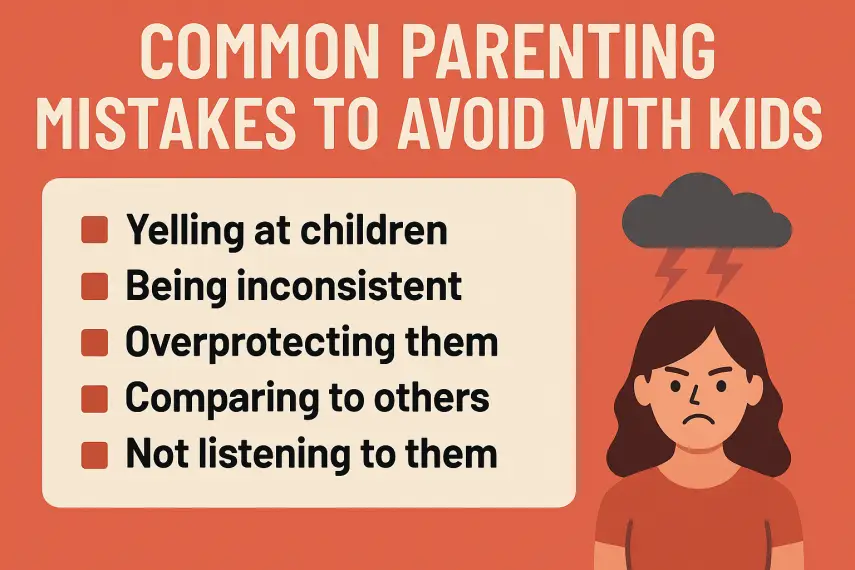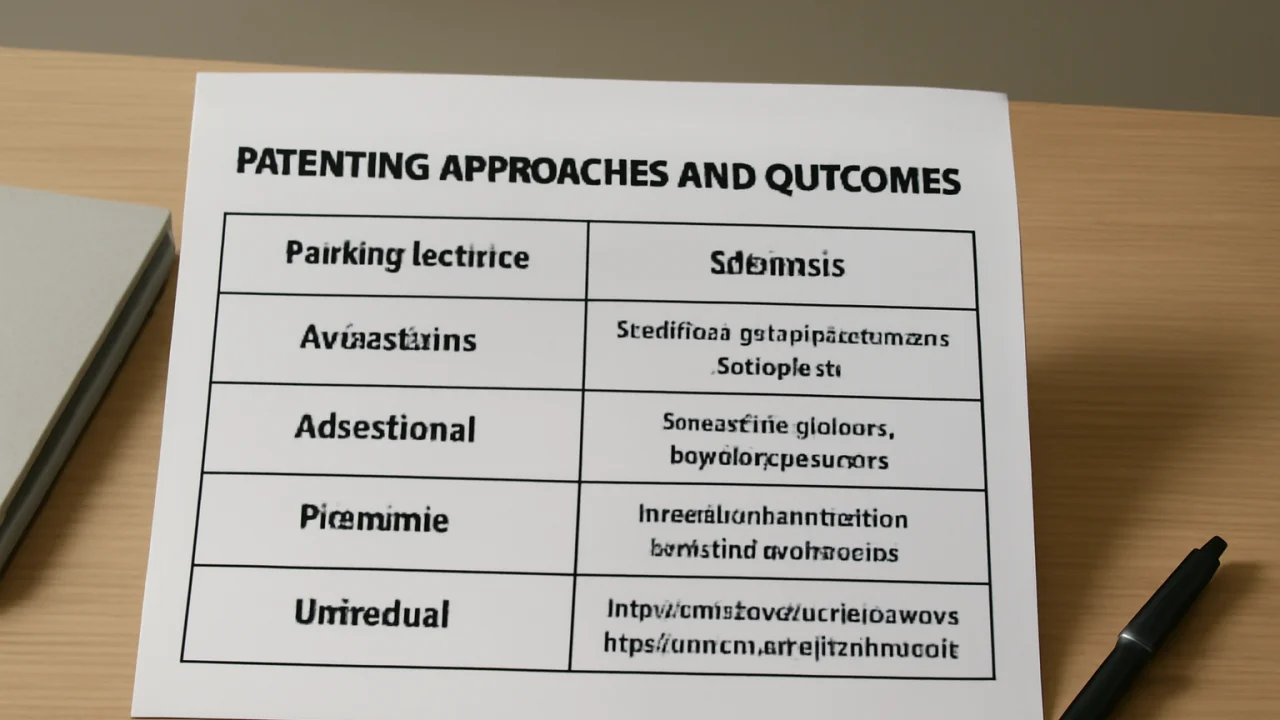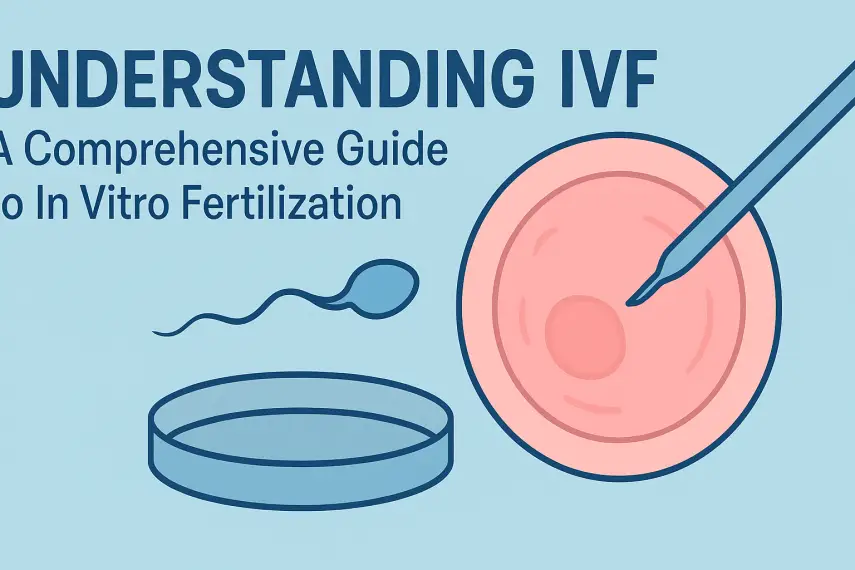
Common Parenting Mistakes to Avoid with Kids
📑 Contents
Parenting is a journey filled with challenges and learning moments, and even the most well-intentioned parents can make mistakes along the way. Recognizing common parenting mistakes to avoid with kids is essential for fostering healthy development, building positive relationships, and creating a supportive home environment. In this guide, we break down frequent errors, their potential impact, and strategies to help parents approach child-rearing with confidence and mindfulness.
Understanding Common Parenting Mistakes

Every parent wants the best for their child, but certain habits and reactions can unintentionally hinder a child’s emotional and social growth. Identifying these common pitfalls is the first step to making positive changes.
Why Do Parenting Mistakes Happen?
Parenting mistakes often occur due to:
- Lack of awareness or knowledge about child development
- Stress and fatigue from balancing multiple responsibilities
- Cultural or familial expectations
- Unresolved issues or learned behaviors from one’s own upbringing
Top Common Parenting Mistakes to Avoid

| Parenting Mistake | Potential Impact on Children |
|---|---|
| Inconsistent Discipline | Confusion about boundaries and rules; behavioral issues |
| Lack of Positive Reinforcement | Lower self-esteem; less motivation to try new things |
| Overprotection | Reduced independence; increased anxiety |
| Not Listening to Children | Communication breakdown; feelings of neglect |
| Unrealistic Expectations | Stress; fear of failure |
| Ignoring Emotions | Difficulty in emotional regulation; trust issues |
| Negative Comparisons | Low self-worth; sibling rivalry |
Detailed Insights into Frequent Parenting Errors

1. Inconsistent Discipline
Children thrive on consistency. When parents enforce rules sporadically or change consequences, children may feel uncertain or test boundaries more frequently. Consistent discipline helps children understand expectations and develop self-control.
2. Lack of Positive Reinforcement
Recognizing and praising children’s efforts, not just their achievements, builds confidence and motivation. Focusing only on mistakes or negative behaviors can diminish self-esteem and discourage effort.
3. Overprotection
Shielding children from all challenges may seem caring, but it can prevent them from developing resilience and problem-solving skills. Allowing children to experience manageable failures helps them gain independence.
4. Not Listening to Children
Active listening fosters trust and open communication. When parents dismiss or overlook a child’s thoughts and feelings, children may withdraw or act out to gain attention.
5. Unrealistic Expectations
Expecting children to behave like adults or excel in all areas sets them up for stress and disappointment. Tailoring expectations to each child’s age and abilities supports healthy growth.
6. Ignoring Emotions
Children need guidance to identify and manage their emotions. Ignoring or minimizing their feelings can lead to emotional suppression and difficulties in relationships later in life.
7. Negative Comparisons
Comparing children to siblings or peers can harm self-worth and fuel rivalry. Encouraging individual strengths nurtures a positive self-image.
How to Avoid Common Parenting Mistakes

| Mistake | Recommended Approach |
|---|---|
| Inconsistent Discipline | Set clear rules and follow through with consequences |
| Lack of Positive Reinforcement | Praise effort and progress, not just success |
| Overprotection | Allow safe risk-taking and learning from mistakes |
| Not Listening | Practice active listening and validate feelings |
| Unrealistic Expectations | Set age-appropriate goals and encourage improvement |
| Ignoring Emotions | Discuss emotions openly and model coping strategies |
| Negative Comparisons | Focus on individual strengths and achievements |
Healthy Parenting Practices for Positive Development

- Establish routines and consistent boundaries
- Encourage open, two-way communication
- Model the behavior you want to see
- Set realistic, flexible expectations
- Allow children to make age-appropriate choices
- Teach problem-solving and coping skills
- Take care of your own well-being as a parent
Case Study Table: Parenting Approaches and Outcomes

| Approach | Description | Typical Child Outcome |
|---|---|---|
| Authoritative | Balance of warmth and structure | Confident, responsible, socially adept |
| Authoritarian | Strict rules with little warmth | Obedient, but may lack self-esteem |
| Permissive | Warmth without sufficient boundaries | Impulsive, struggles with discipline |
| Neglectful | Lack of involvement and guidance | Low confidence, emotional challenges |
Frequently Asked Questions (FAQ)

1. What is the most common parenting mistake?
One of the most common mistakes is inconsistent discipline, which can confuse children about acceptable behavior and boundaries.
2. How can I avoid comparing my children?
Focus on each child's individual strengths and achievements rather than making direct comparisons. Celebrate their unique qualities.
3. Why is active listening important in parenting?
Active listening builds trust and encourages children to express themselves, improving communication and emotional connection.
4. What are the effects of overprotective parenting?
Overprotective parenting can hinder a child's independence and problem-solving skills, potentially leading to increased anxiety.
5. How should discipline be handled effectively?
Effective discipline involves setting clear expectations, being consistent, and using consequences that are appropriate to the child's age and behavior.
6. What are realistic expectations for my child?
Realistic expectations are based on your child's age, developmental stage, and individual abilities. Avoid expecting perfection and allow room for growth.
7. How can parents support emotional development?
Support emotional development by acknowledging feelings, teaching coping strategies, and modeling healthy emotional expression.
8. What should I do if I realize I’ve made parenting mistakes?
Acknowledge the mistake, apologize if necessary, and focus on making positive changes. Parenting is a learning process, and self-reflection is key.
Conclusion

Being aware of common parenting mistakes to avoid with kids empowers parents to make informed, positive choices that support their child’s well-being. No parent is perfect, but a commitment to learning and growth can make a significant difference. For more insights and tips on positive parenting, visit isayinfo.com and explore our resources.











